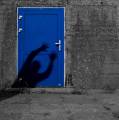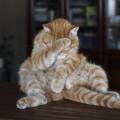OCD Treatment: OCD vs. Me. How do I Tell the Difference?

You are not your OCD. One important part of OCD treatment involves recognizing that your symptoms do not define you.
Question: Because many of my OCD rituals are related to my professional identity, I’m worried that changing my rituals will somehow change those parts of me that I like (e.g., my personal goals and ambitions). Should I be concerned about this?
Early Onset OCD in Kids & Teens (Pediatric OCD)
Many people worry that by fighting their OCD, they will lose essential parts of themselves. This is particularly true for adults with obsessive compulsive disorder, who have had to deal with OCD for most of their lives. Because OCD often begins early in childhood and can have a chronic course, it can be difficult to separate yourself from your OCD symptoms. In many pediatric OCD cases, kids with OCD exhibit symptoms by age 10. Shockingly, in certain cases, even toddlers can show clinical signs of obsessive-compulsive disorder. There are some documented cases of 2-year-olds demonstrating early onset symptoms, which certainly underscores the genetic underpinnings of the illness. In early onset cases, symptoms tend to worsen when the child begins going through puberty. Not everyone develops OCD as children, however. Other individuals don’t exhibit significant obsessive compulsive symptoms until later in life (e.g., late teens/early adulthood).
Regardless of the age of onset for OCD, the average amount of time between symptom emergence and treatment is greater than 10 years. During this intervening period, individuals with OCD often lose sight of who they are and find it difficult to separate themselves from their OCD symptoms. Where does the individual end and OCD begin? This is particularly true in cases involving perfectionism, scrupulosity, Pure-O symptoms, violent obsessions and/or sexual obsessions, and hoarding, in which symptoms tend to intermingle with personality traits, guilt, and shame.
OCD Compulsions Reflect Symptoms, Not You
The reality is that rituals do not make you who you are. You are a person first and foremost, and your drives, desires, and ambitions are uniquely yours. I conceptualize rituals as symptoms of an illness. They don’t make you who you are; they’ve simply been a maladaptive coping strategy you’ve used to manage your anxiety. Ultimately, this strategy has proven to be more detrimental than helpful.
If anything, your symptoms tend to hide who you actually are. OCD is greedy, and it likes nothing more than to wreak havoc on your confidence, sense of humor, and interpersonal relationships. Oftentimes, when individuals with OCD commit to treatment, they rediscover positive aspects of themselves that have been lost to their illness. When rituals are reduced, your days miraculously get longer. Time and energy previously lost to compulsions can now be spent on activities of your own choosing.
Treatment tends to enhance quality of life…not diminish it.
Questions? Comments? How do you separate yourself from your OCD? Please share below.
Want Updates about New Content?
Follow Me!
Follow @drstevenseay












Steve,
I started swallowing alot a few weeks ago. It makes me tired and I don’t want to give in to it. In ERP, if the P is prevention, does that mean you try to stop giving in to the impulse to swallow? Started Zoloft 3 weeks ago not much help. Going to ee a Psychologist next week. Will swallowing all the time hurt me? Thanks